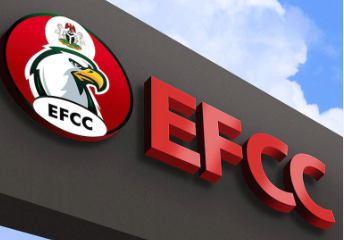The Central Bank of Nigeria (CBN) has stopped banks from writing off loans extended to their directors and associates without its approval.
The directive is contained in the Corporate Governance Guidelines for commercial, Merchant, non-interest and payment service banks. The new guidelines took off on August 1.
The CBN further said that any director whose facility or that of his related interests underperforms for more than one year shall cease from being a board member. Such a director shall also be blacklisted from sitting on the board of the bank or any other financial institution supervised by the apex bank.
The new rules followed shareholders’ complaints about the continued rise in the number of insider-related loans to directors.
For instance, loans worth N113 billion granted to directors and associates of four top banks prompted their shareholders to protest in Lagos.
The CBN directed banks to come up with a Code of Business Conduct and Ethics containing information and practices necessary to buoy their integrity.
The code, according to the CBN, should also take into account the legal obligations and reasonable expectations of their stakeholders as well as the responsibility and accountability of individuals reporting unethical practices.
READ ALSO: Banks offer telcos repayment plan on N120bn USSD code debt
Besides, the CBN directed banks to establish a policy on insider-trading and related-party transactions by directors, senior executives and employees.
In addition, there shall be an internal review mechanism carried out by the internal audits of the banks for the purpose of checking compliance and effectiveness of the policy.
The policy must contain appropriate standards and procedures to ensure its effective implementation.
The CBN also authorized bank boards, subject to approval, to appoint their managing directors/chief executive officers and executive directors as well as senior management staffers.
The policy reads in part: “The board shall approve a succession plan for managing directors/chief executive officers, executive directors, other executive and senior management staffers, which shall be reviewed at least once every two years,” it stated.
READ ALSO: NDIC begins payment of failed banks’ depositors, calls for bank accounts
“The board shall consist of executive and non-executive directors. The number of non-executive directors shall be more than executive directors on the board and its committees. Members of the board shall be qualified persons of proven integrity and shall be knowledgeable in business and financial matters, in accordance with extant guidelines on competency and fit and proper persons for the Nigerian banking industry.”
The new policy further mandated that no more than two members of an extended family shall be on the board of a bank.
“Only one member of an extended family can occupy the position of managing director/chief executive officer, chairman or executive director at any point in time.
“Where a merger, acquisition, take-over, or any form of business combination involves the appointment of a director from the board of the legacy institution, the length of service of such director shall include both the periods served pre and post-combination.”

 Health5 days ago
Health5 days ago
 Entertainment7 days ago
Entertainment7 days ago
 Education7 days ago
Education7 days ago
 Crime5 days ago
Crime5 days ago
 Health7 days ago
Health7 days ago
 Comments and Issues6 days ago
Comments and Issues6 days ago
 Football6 days ago
Football6 days ago
 Latest6 days ago
Latest6 days ago













